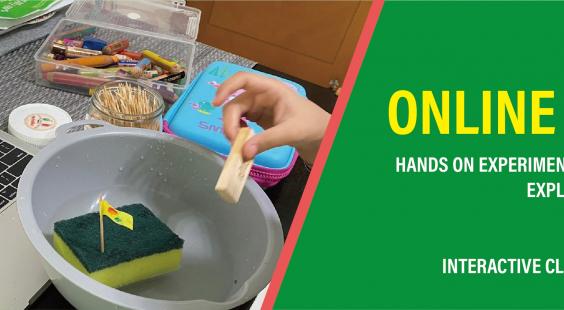
Make Your Kids Money Smart
As parents or caregivers, have you ever refused your children or students certain things that they wanted? Have you hoped that somehow your kids start to understand the value of hard-earned money?
If your answer to either of these questions is "yes" , you may want to read on and get smarter about how to involve kids in money management matters.
Money Management
Money management is one of the most important life skills that a child should learn. Of course, you don't want to involve kids in your own financial pressure at any point of time, but money management can go a long way in teaching them about decision making and making balanced choices. Research has shown that those kids who participate in family finances grow up to be more aware, confident, and responsible adults.
When Should You Start Teaching Kids about Personal Finance?
While emphasis on right age is around high school, but many people believe that building foundation in financial matters early on right from primary school, can be much more beneficial. And below are the suggested ways for teaching pre-schoolers, elementary students and middle schoolers about money.
For Preschoolers
It's never too early to start. You can help the preschoolers understand the meaning of an investment:
1. Start with Fun Books - Read books such as “the Little Red Hen”. This book, for instance, will help them grasp the concept of how Little Red Hen reaped the rewards of an investment.
2. Use a Glass Jar - Instead of using a piggy bank which sometimes can hinder visuals of coins and currency being saved, use a clear jar and show your child how money “grows” with addition of new coins.
3. Show and Tell - Every time you decline to buy a toy, saying "oh god, it's 10 dollars, super expensive" can confuse and dishearten a child. Instead help them grab $10 from their jar, take them to store, and hand over the money to cashier. This act of using money to buy a toy and show them how it affects their money jar, can have a much better impact than just lecturing them about value of money.
For Elementary Students and Middle Schoolers
1. Show Opportunity Cost - Opportunity cost is “the loss of potential gain from other alternatives when one alternative is chosen”. You may tell your kid “If you buy this video game, you won't have the money to buy that pair of headphones”. At this age, kids can weigh decisions and understand possible outcomes.
2. Let them Earn Some - Don't give pocket money without any conditions / reservations. Ask your kids to do some household chores like making their bed, helping with dishes, taking out the trash etc. This will help them understand that money has to be earned, it's not just to be given to them.
3. Help them Learn Comparison Shopping - At supermarkets, show your child how to compare different brands to make your money buy more. When your child wants to spend some of the earned allowance / pocket money, help them to comparison shop with online sales pamphlets and by checking store websites for prices, so they can get the most for their money.
4. Introduce Simple Investment Concepts - Watch their favorite Marvel movie together and explain that anyone can buy and own a little piece of the Marvel Entertainment Company through stocks.
5. Stress the Importance of Giving - Once they start earning pocket money, teach your kids the spirit of giving. Have them pick a charity or someone who might need a bit of help. This will help them understand that of all the money earned, we have to reserve a portion for the benefit of others.
Benefits of Prudent Financial Management
Prudent financial management is a valuable life skill for children nowadays, so starting it when they're young is best. To get started, demonstrating sound money management yourself is critical, because children absorb money lessons from watching their parents and caregivers earn, spend, save, and borrow. Children who learn money management skills before leaving home can be in a better position to pay for their education, enjoy homeownership, and much more without stressing themselves.
Every parent wants to equip their child to make the right choices and face challenges in life, so developing the skills to fulfil their true potential is important.








